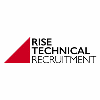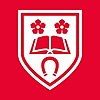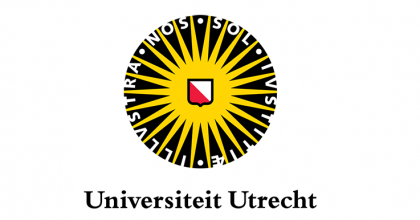Snabbfakta
-
- Toulouse
Ansök senast: 2024-08-25
Research Engineer Position in Aerosol Remote Sensing F/ H
Expert public de la météo et du climat, Météo-France est à vos côtés pour contribuer à votre sécurité au quotidien et vous aider à prendre les meilleures décisions, dans un climat qui change.
Face à des épisodes météo dangereux encore plus intenses et plus fréquents sous l’effet du changement climatique, nos missions au service de votre sécurité sont cruciales.
Nous mobilisons notre expertise, notre excellence scientifique et technologique pour vous permettre d’anticiper les phénomènes météorologiques et climatiques à enjeux, et de vous y adapter.
https://meteofrance.com/carte-didentite-de-meteo-france
The CNRM laboratory (Météo-France/CNRS) is now looking for a motivated and enthusiastic research engineer to contribute to our research activities in remote sensing of atmospheric aerosols from the next generation of weather satellites in geostationary Earth orbit. We are seeking someone with a solid background in quantitative remote sensing, who will play an important role in a forthcoming project aiming the development of the future EUMETSAT aerosol satellite product from the new Meteosat Third Generation-Imager (MTG-I) mission.
Geostationary satellites are essential for meteorology and climate studies, thanks to their ability to observe the Earth several times an hour. This high temporal frequency is particularly interesting for characterizing the often rapidly changing aerosol particles, which are injected into the atmosphere by human activities, volcanic eruptions and other sources sensitive to climate change, such as forest fires and dust storms. Geostationary satellites can provide unique information to better understand aerosol diurnal-scale processes, which remain poorly understood today and cannot be studied from traditional low Earth orbit satellites providing only one or two images per day.
In December 2022, EUMETSAT launched its first MTG-I satellite, due to become operational in 2024, succeeding the Meteosat Second Generation (MSG) mission, in orbit since 2002. MTG-I is equipped with the Flexible Combined Imager (FCI), which acquires advanced images of the Earth compared with those taken by the Spinning Enhanced Visible and Infrared Imager (SEVIRI), on board MSG. The first phase of the upcoming EUMETSAT-funded project aims to develop a retrieval algorithm to monitor aerosol properties, mainly optical depth, from FCI data, every 10 minutes. CNRM plans to achieve this goal by building on the expertise it has acquired in recent years with SEVIRI data (https://www.icare.univ-lille.fr/projects/user-driven-projects/aerus-geo/, https://www.eumetsat.int/I-AERUS-GEO) and by overcoming current retrieval limitations thanks to FCI’s new spectral channels, among other improved sensing performances compared to SEVIRI. A secondary objective is to assess the benefits of the obtained FCI aerosol observations for numerical prediction using a chemical transport model.
The successful candidate:
will contribute to the scientific evolution and technical adaptation of the SEVIRI aerosol retrieval algorithm developed at CNRM to FCI data. The main tasks will involve improving the aerosol type assessment and the estimation of errors, as well as processing multiple FCI channels to maximize the aerosol information content.
will assess the new FCI algorithm by comparing the obtained aerosol retrievals with reference data from ground-based stations and state-of-the-art satellite products.
will write technical documents and participate in meetings related to the project.
will collaborate with a team of scientists, research engineers, and students from CNRM and other institutes (ICARE, LOA, EUMETSAT), working on satellite remote sensing and numerical prediction.
will be encouraged to submit their work to peer-reviewed scientific journals.
Requirements:
Engineer or M.Sc. degree in a field related to satellite remote sensing. The holding of a PhD is a plus.
Expertise in quantitative remote sensing, geophysical data inversion, atmospheric aerosols, radiative transfer in the visible/near-infrared domain (expertise in all fields is not mandatory).
Good programming skills (python, fortran, git, linux).
Professional proficiency in English, with good written and oral communication skills.
Proven ability to work as part of a research team.
Practical aspects: The successful candidate will be based at CNRM, in Toulouse, which is a dynamic city renowned for its research centers and aerospace industry. A 1+1-year contract is offered, with the possibility of renewal for up to 3-5 years based on performance and funding. The gross monthly salary is around 3480 euros, including French social security and partial reimbursement of Toulouse transport pass. This is a telework eligible position, with a maximum of 2 days a week.
Application procedure: Interested candidates are invited to send their CV, a motivation letter, and the contact details of two academic referees.
Further reading:
https://doi.org/10.1175/BAMS-D-19-0304.1













